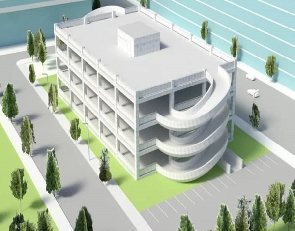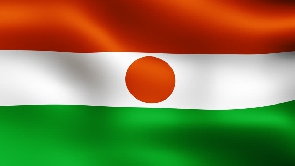The Ho Municipal Assembly has outlined a plan to transform the Regional capital to meet the acclaim as the heart of the Volta Region’s tourism economy.
The city has been declared an 'oxygen city' for its airy atmosphere. A redesign of the Municipality’s spaces to enhance the oxygen experience was presented to private sector players at Ho.
The assembly had invited leaders of the private sector to execute the multi-million dollar facelift which would have a multiplier effect on the Region’s economy.
The project, with six components, would provide structures and spaces for the estimated 24,000 visitors to the Region that make a stop at the capital, and with a tourism receptive complex.
Mr. Divine Bosson. Ho Municipal Chief Executive (MCE), asked CEOs at the meeting to embrace the project to help meet the dream of making the Municipality and the Region a top destination in the country and the West African sub-region.
He commended hospitality players in the Municipality for supporting the concept and should continue in that direction.
“The project is designed to attract tourists from all over the world to our Municipality that is now aptly dubbed the 'Oxygen City'. It is a statement of fact that when these targeted tourists come to our municipality, the first point of call would definitely be the hotels and recreational centers.
“We formally invite you as critical partners of the project, and to solicit your resources, and ideas, to enrich the project in our march going forward.
“Let us leverage our unique environment, God-given endowments, and harness the much abundant opportunities for ourselves and people; and open up to the outside world to enjoy our unmatched hospitality, serenity, peace, and warmth”.
Alhaji Zakari Wahabu, Municipal Planning Officer (MPO), said the six components included the production of oxygen which would be made possible through the planting of five million trees and the establishment of an ecological park.
The project also has a carbon emission component where hotels, homes, and other facilities would be required to plant trees, and a diplomatic garden is being developed to attract members of the international community to the cause.
Neighborhood parking lots and dedicated cycling lanes for the promotion of noncombustible commuting, form part of the carbon emission component, which would also see the development of tree avenues and the decongesting of significant streets.
Mr. Wahabu said bush burning would be totally minimized through the enforcement of local laws, and added that the economic benefits of the project were unfathomable, as the transport and all other connected sectors were sure to flourish.
He said health benefits were also a driver of the transformation, and that a flight of stairs to be built up the Kabakaba and Galenkui hills would attract locals and visitors.
The planning officer said the project would be realized through inter-district collaboration, which would be instrumental in pursuing anti-bushfire campaigns, zoning of forests and reserves, and waste management.
The Municipality which has a prominent student population would become a smart city with the introduction of free internet services among other innovations.
The MCE said that there were plans to redefine commercial activities along the city’s streets by providing conceptualized and standardized commercial spaces that would replace the uncontrolled rise in metal container stores and business centers.
Mr. Alexander Nketia, Regional Director of the Ghana Tourism Authority, showcased a proposed multimillion-dollar ecological park on the Kabakaba and Galenkui Hills.
He said it would be a community-led tourism initiative that would include a solar-powered energy village, eco-lodges, children’s playground, and theme parks, as well as the development of a Zipline infrastructure.
The Environmental Protection Agency reported at the engagement, that the Region maintained its green cover, and that bush burning had reduced in the last two years.
Regional News of Sunday, 23 April 2023
Source: GNA
Physical transformation plan for Ho under Oxygen City project outlined
Entertainment

Blackmail Saga: Court remands Showboy, case adjourned
Opinions










